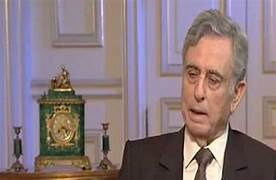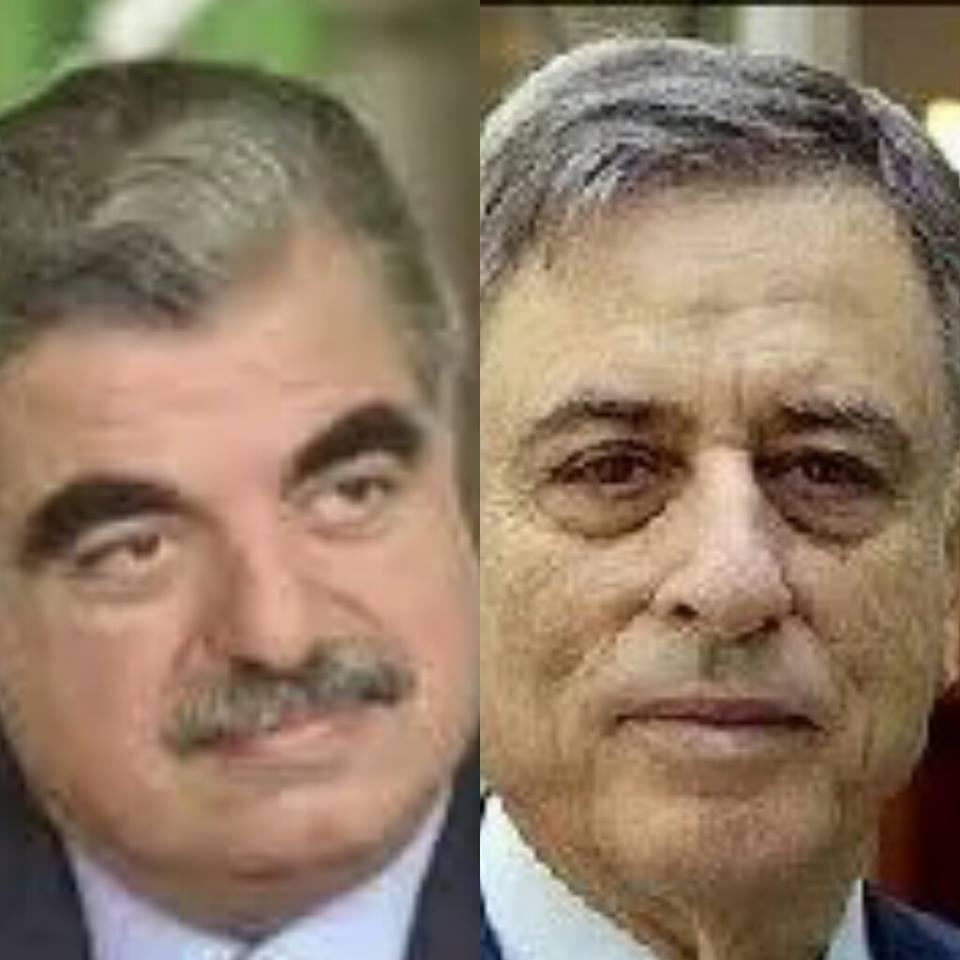Abdul Halim Khaddam, the dissident Syrian Vice President, called for holding a national conference that unites all opposition parties and brings together its national leaders to increase their ability to overthrow Bashar al-Assad’s regime. He said in an interview with Al-Riyadh that he is not aspiring to power, but rather he wants to work to unify ranks and save Syria from the state of loss and weakness it is witnessing. He added that Al-Assad handed Syria over to the Iranian administration, which now controls all aspects of the state through its forces on the ground and its advisors who stand above Al-Assad's head.
To the dialogue:
In light of the Western reluctance to provide military weapons to the opposition, what is the way, in your opinion, to change the equation on the ground in the face of these negative data?
I believe that the Gulf states and the Arab states, led by the Kingdom of Saudi Arabia, which played an important role in supporting the oppressed Syrian people, are able to put pressure on the Americans in order to help the Syrian opposition in confronting the regime and overthrowing it. There is a clear defect in the general line of American policy, which is based on the principle of draining Iran. Russia is in Syria, meaning that the Syrian people will pay the price of this war between the major powers.
The American position in Syria has become questionable, but what strengthens the opposition’s strength are the Arab brothers, whom no one can challenge or doubt. They have provided some aid, and if they make a decision to provide more effective military aid, this will lead to great results. The first is the fall of the regime because the Syrians have a great capacity for sacrifice, but they lack the tools for confrontation.
Bashar handed Syria over to the Iranians... and if his regime fell, the entire Iranian structure would fall
Secondly, if the regime falls, Iran will fall in Lebanon, Syria and Iraq and will return to its borders and will face internal divisions and conflicts because Tehran is covering its situation with its foreign policies.
The third thing is that if the people of Assad are removed from them, I believe that our Arab brothers will be relieved. Iran today has great ambitions, which are to control the region from the Mediterranean to Afghanistan, and this is what I heard from Rafsanjani.
Iran has aroused sectarian fanaticism among the Shiites until it turns them into dormant forces in the Arab and Islamic countries. It uses them when the appropriate circumstances arise to control Syria, but if it succeeds in its control, it will not stop at these borders.
What encourages Iran to move forward on its path is its alliance with Russia, through which Moscow achieved strategic gains to restore its major interests in Central Asia and become with Iran on the shore of the Gulf or on the shore of the Arabian Sea. If this coalition does not strike in Syria, it will remain a great burden on the Arab and Islamic world.
Bashar handed the Iranians control of Syria. The Syrian army officers all go to train in Iran, and Tehran’s advisors are above Bashar’s head, except for their forces that are fighting in Syria with Hezbollah and the armed Shiite organizations, and therefore Iran now occupies Syria, and if Bashar’s regime falls, the entire Iranian structure will fall.
How do you evaluate the military situation the regime is experiencing?
Bashar is not strong at the present time with his own strength. His army is damaged and the ones fighting are the elements that came from Lebanon, Tehran and Iraq. Also, ISIS, which has never fought the regime, has its main headquarters in Iran, and according to these data, we need an Arab initiative to support the revolution in Syria.
You are one of the people who know Bashar's thought well. How do you expect Bashar to deal with the fall of his regime?
If things get tough, he will not be able to leave Syria, and all doors will be closed in his face. From this standpoint, the Syrian opposition must be armed immediately, in addition to holding a national conference that unites all opposition parties and brings together national leaders. This conference chooses two leaderships; A political and military leadership, and this unification will increase the opposition’s capacity a hundredfold because the regime’s army is unified with Iran, Hezbollah, and other brigades, while the opposition fights fragmented.
From the information I have, there are army officers, 90% of whom are Alawites, who were sent by Bashar to the coast with their families, and who began threatening the residents that they would be slaughtered if they abandoned the regime.
Why is Khaddam far from the Syrian political scene, given Syria’s need for him and all its men?
I am not far from the scene, and our group is the one fighting in a number of regions, but I basically declared that I am not aspiring to power. Rather, I want to work to save my country. I do not want to become the leader of a group, but rather I want to unite the ranks.


